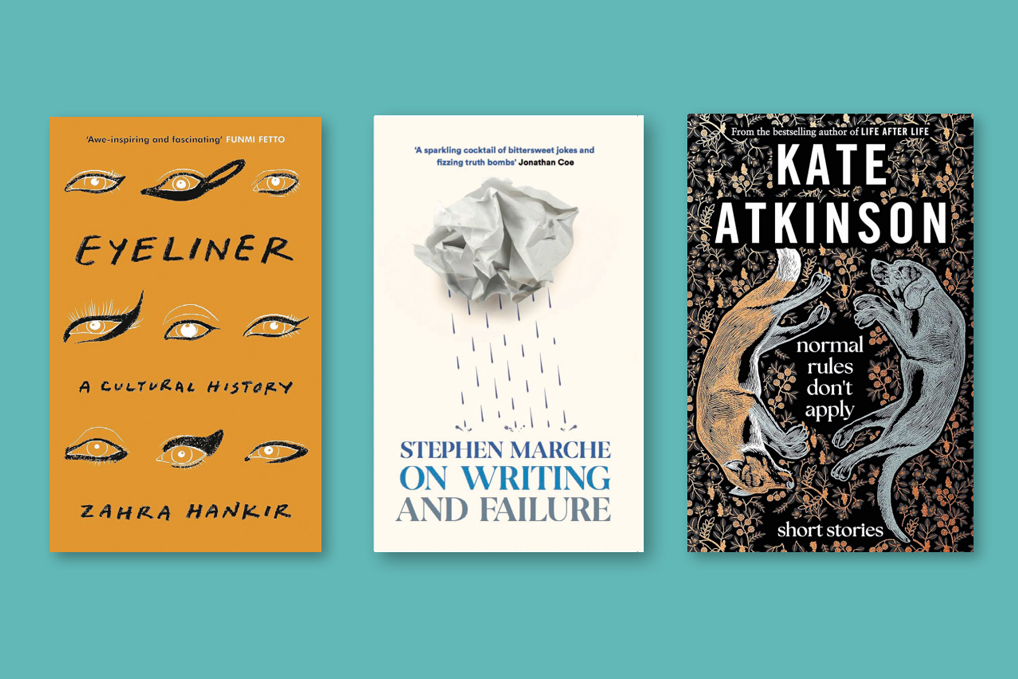 From the meaning of make-up to the struggles of the writing life and magical short stories: three books to hunker down with in January
From the meaning of make-up to the struggles of the writing life and magical short stories: three books to hunker down with in JanuaryEyeliner: A Cultural History by Zahra Hankir
(Harvill Secker, £18.99)
As an eyeliner fiend (I’ve been doing the Maria Callas wings every day since I was 14), I was drawn to this book. Many consider make-up to be a frivolous sign of vanity, but Hankir’s deep dive into the history of eyeliner’s proves it’s anything but.
Beginning in ancient Egypt, the narrative spans the world and the gender divide. In Chad, men of the Wodaabe people wear eyeliner to attract potential brides, and in the US, young Cholo women wear wings as an homage to their adopted Mexican identity.
In some cultures eyeliner was also worn to shield eyes from the sun, and in Japan red liner is a symbol of protection. In Iran, it can be a matter of life and death: women wear it to express themselves in ways they otherwise can’t, and too-bold wings can result in punishment.
Hankir believes eyeliner is about power, race, religion and, above all, community. But it’s also about identity: we instantly recognise the lined eyes of famous women such as Amy Winehouse, Sophia Loren and Queen Nefertiti.
It can be a sign of self-expression, glamour, nonconformity or rebellion, and at the same time can be both chic and dangerous.
Lyndsy Spence
ON WRITING AND FAILURE by Stephen Marche
(Sort of Books, £7.99)
If you imagine the life of an author is enviable, read this wry, amusing and lighthearted book, which charts the failures, setbacks and humiliations suffered by some of the world’s best-loved writers.
Vladimir Nabokov’s novel Lolita, one of the most famous works of the 20th century, was turned down by every serious publisher. Jane Austen never lived to see her name on any of her books, and no publishing house would initially touch George Orwell’s Animal Farm. Even Shakespeare died with many of his plays unproduced.
The greatest triumphs, we are reminded, were often achieved only after years of rejection, poor sales and lacklustre reviews. Alex Haley, the author of Roots (twice adapted for television) experienced nothing but knockbacks for years.
Even J.K. Rowling, possibly the biggest-selling author of modern times, found herself rejected when she began writing crime fiction under the name Robert Galbraith.
Literary geniuses have grappled with failure and brilliant authors have died in the gutter, but thankfully for us they persevered. Yes, you need talent and you need a little luck, but most of all, as this book proves, you need persistence.
Liz Hodginskon
Normal Rules Don’t Apply: Short Stories by Kate Atkinson
(Doubleday, £18.99)
A talking horse that gives racing tips, the unseen lives of a child’s toys, and a mysterious, terrifying void are just some of Kate Atkinson’s subjects in this collection of 11 short stories.
At times playful and magical, themes from children’s fairy tales are recast into an adult world stripped of all whimsy and laced with irony and just a hint of North Yorkshire. In one story a queen makes a pact with a witch, who promises to grant her greatest wish: to have a child. Her daughter is duly born, but at the cost of the queen’s riches and beauty: a poignant metaphor for motherhood if ever there was one.
Each story stands on its own, but if read in sequence you become gradually inducted into a secret society of in-jokes and tropes that carry through in successive tales. One brilliant recurring character is a man called Franklin, a jobbing actor and connoisseur of the turf who survives a succession of terrible events only thanks to his literary technique.
Highly enjoyable and yet thought-provoking, Atkinson is at her best when describing the flint-edged charm of the British bourgeoisie - it’s like Evelyn Waugh meets Angela Carter.
Stephen Coulson








